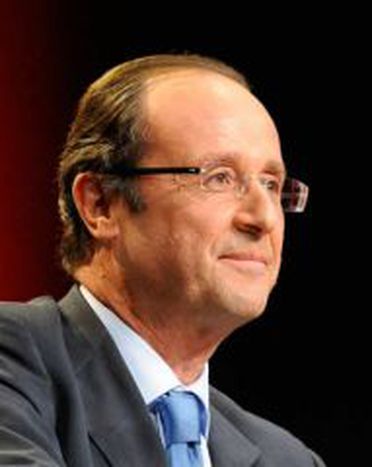
Hollande Through Belgian…and European…Eyes
Published on
By Aris Kokkinos Translated by Danica Jorden All of Belgium has been fascinated by the French presidential election, from Prime Minister Elio di Rupo to the general public. Spared by the French law on divulging results, Belgian media has been under assault in the online community during the two rounds of voting, their estimates being rapidly mocked in tweets with hashtags like #RadioLondres.
The rest of Europe is also closely following the election. On 7 May, a day after the second round, Journalists@YourService organised a debriefing on Hollande’s victory.
Responding to journalists’ questions were Philippe Ricard, journalist at Le Monde, and Pascal Delwit, political scientist at the Free University of Brussels. They underlined that the event marked the return of a socialist to the Elysée Palace after 17 years, but also discussed the challenges presented along the way.
For Philippe Ricard, this is certainly a victory for the left, but it’s also a disappointing victory, as the two opposing parties in France mobilised strongly against each other, which will be confirmed during the third round of legislative elections on 10 and 17 June. If the Socialists carry them, will they be strong enough to form a government, or will they have to rely on the Front’s left wing, the MoDem? On the other front, the UMP is under pressure. Its turn to the right will be difficult to manage.
Pascal Delwit brought up the Keynesian anchor to Hollande’s programme. The new president is promoting growth at Europe’s budgetary pact, and refuses to insert the so-called golden rule into the French constitution. But he’ll have a two-pronged difficulty reconciling means, since a Keynesian approach requires spending, with alliances, as François Hollande will have a hard time convincing his colleagues, especially German Chancellor Angela Merkel.
For his part, Hollande wishes to maintain close relations with Germany, while at the same time rebalancing relations with other member states. If he doesn’t gain the total support of Berlin, at least he can count on other capitals.
Paris-Athens, By Way of Frankfurt
For Ricard and Delwit, if the forecast French tsunami hadn’t occurred, with Nicolas Sarkozy faring well, it did in fact happen in Greece, where voting took place the same day, turning the political scene there upside down.
Apart from the literary work of Vassilis Alexakis, there was indeed a common point between Paris and Athens: that of the sovereign debt. Whereas Paris financial markets digested François Hollande’s arrival, favouring actions over words, in Athens they came unglued, losing nearly 7% on 7 May.
As the spectre of the Greek crisis resurfaces, the ECB might give a deaf ear to Hollande’s desires for a memorandum on the budgetary treaty. So soon after being elected, the Don Quixote of Europe’s left already has some windmills in his path.



